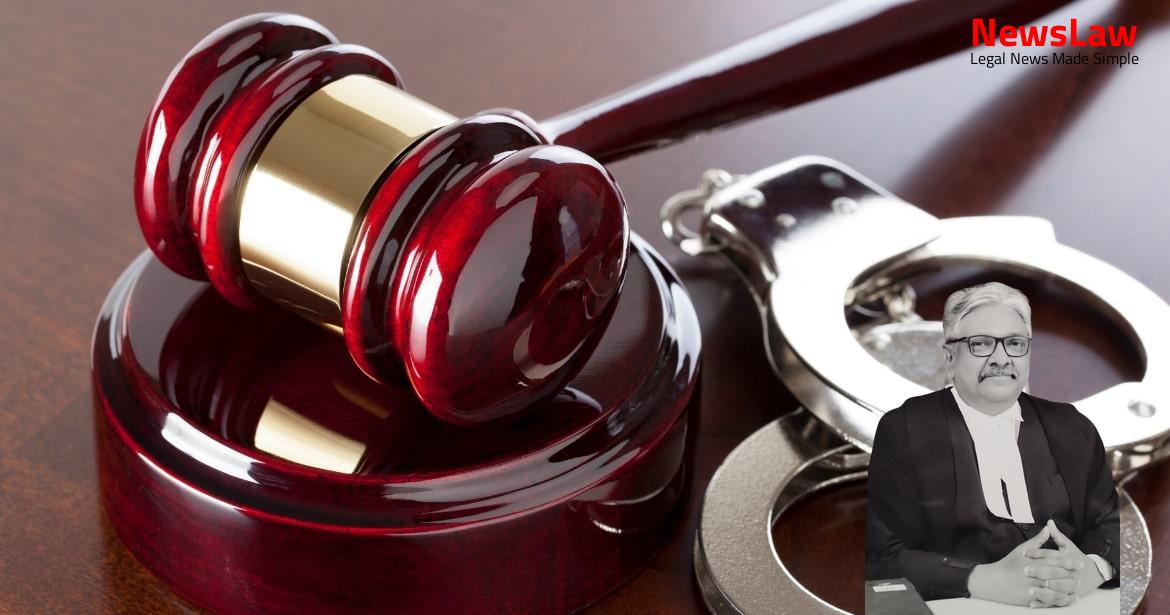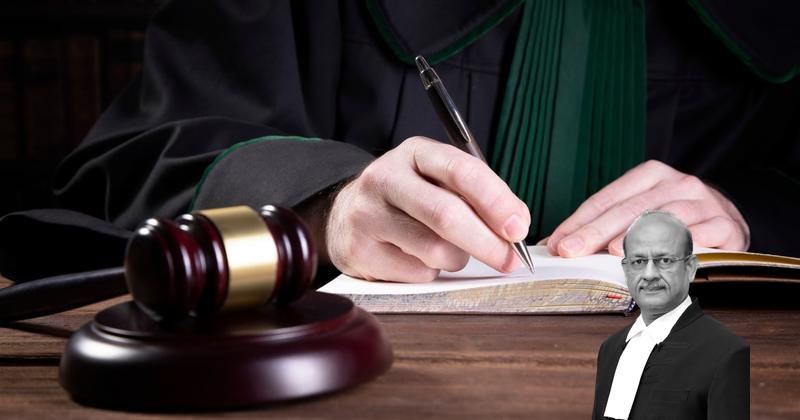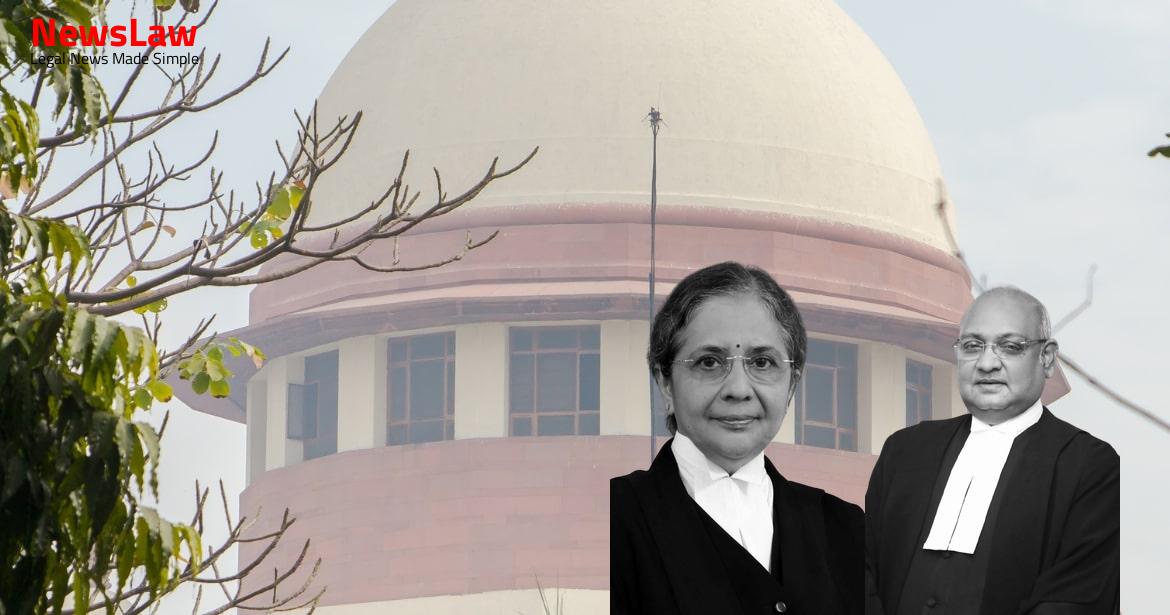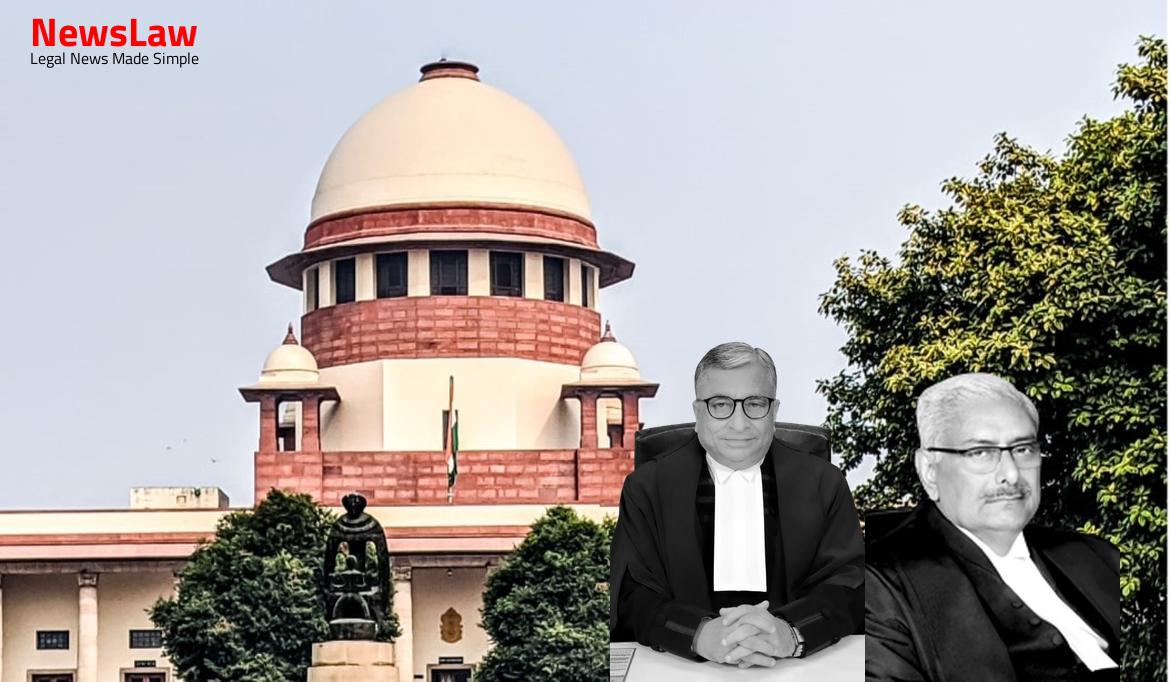Delve into the legal analysis of a case where the court plays a vital role in overseeing police investigations to ensure accountability and uphold constitutional rights. The case highlights the significance of fair and thorough investigations in the criminal justice system, emphasizing the need for proper supervision and adherence to statutory provisions by law enforcement authorities.
Facts
- Shri Ram Bihari Chaubey, the father of the petitioner, was shot dead at his residence on 04.12.2015.
- Respondent no.5 had 24 criminal cases against him, including under Section 302 IPC.
- Five criminal trials are still pending against respondent no.5.
- The High Court disposed of the writ petition, accepting police contention that the investigation would be concluded expeditiously.
- The F.I.R. was registered on 04.12.2015, with the investigation later closed on 30.01.2019.
- Eight investigating officers were changed during the case.
- Respondent no.5 was also involved in other criminal cases and had been put behind bars under the National Security Act.
- Various closure reports and progress reports were submitted to the court regarding the investigation.
- The case involved political rivalry and conspiracy, with respondent no.5 implicated in the murder.
- Respondent no.5 sought impleadment in the writ petition and investigations were ongoing against multiple individuals.
- Allegations of respondent no.5 giving a contract of Rs. Five lacs for the murder were noted.
- The deceased and respondent no.5 had political rivalry due to assembly and panchayat elections.
Also Read: Presumption of Genuineness in Legal Documents Case
Analysis
- Police has a statutory duty to investigate any crime in accordance with the Code of Criminal Procedure.
- Investigation is the exclusive privilege of the police and cannot be interfered with.
- If the police does not perform its duty or is remiss, the court must ensure proper investigation in accordance with the law.
- The court’s involvement in directing investigation does not amount to interference.
- Fair investigation is essential for upholding Articles 14 and 21 of the Constitution.
- The police has a primary duty to investigate cognizable offences.
- The investigation must be thorough and aim to find the truth and bring offenders to justice.
- Closure report and investigation were found to be casual and perfunctory.
- Lack of credible evidence against certain individuals led to insufficient investigation.
- Supervision by the Senior Superintendent of Police was lacking and needs improvement.
- The power to investigate cognizable offences by police officers is generally not restricted unless there are indications of misconduct.
- Courts may intervene in exceptional cases where police officers breach statutory provisions or abuse their investigatory powers, jeopardizing the rights of citizens.
- Lord Denning emphasizes the important role of the police in defending freedoms and preventing/detecting crime.
- Police power should be exercised within statutory limits and for legitimate purposes, avoiding excessive use of force.
- The police are responsible for protecting the life, liberty, and property of citizens.
- In criminal justice, police must not extort confessions through threats or promises.
Also Read: Challenges with Dying Declarations in Legal Analysis
Decision
- Shri Satyarth Anirudh Pankaj, I.P.S. appointed as senior officer for further investigation
- Investigation to be concluded within two months unless extension is required
- Closure reports partly set aside for non-charge sheeted accused
- Superior courts may monitor investigation in rare and compelling circumstances
- Trial against charge sheeted accused commenced, further trial stayed on directive
- Director General of Police, Uttar Pradesh to take necessary actions
Also Read: Promotion Dispute: Seniority-cum-Merit Principle
Case Title: AMAR NATH CHAUBEY Vs. UNION OF INDIA (2020 INSC 698)
Case Number: Crl.A. No.-000194-000194 / 2023



